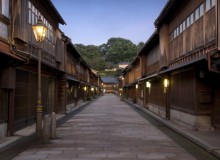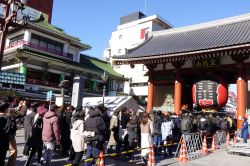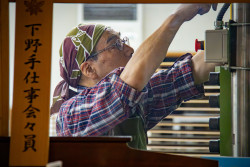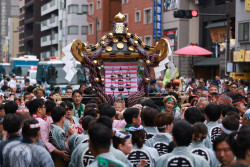
September 27, 2013
Peter Krasinski
The American musician brings the rare art of silent film accompaniment to Japan
By Metropolis
Originally published on metropolis.co.jp on September 2013
American musician Peter Krasinski is preparing for his fifth tour of Japan, which will see him provide accompaniment to silent films and play a massive pipe organ in Yokohama. Metropolis caught up with the keyboardist to see what he is planning for his upcoming performances.
Silent film accompaniment is not something you see every day. How did you get started?

The journey from classical studies to improvised organ accompaniments for silent movies began early for me. As a youngster I heard fun-loving film accompanists at the Stoneham Town Hall in Massachusetts and fell in love with the idea of portraying a visual story line with music. I was in my teens when I heard the magnificent sounds of Pierre Cochereau playing to a capacity audience at Notre Dame on a family trip to Paris in 1974 and realized that the kind of music making I was doing my whole life was greatly respected in other areas of the world.
I won the AGO National Competition in Organ Improvisation in 2002, and was then invited to play a series of silent movies in great spaces that included The Hunchback of Notre Dame at St. Joseph’s Oratory in Montreal, King of Kings at St. Joseph’s Cathedral, in Hartford, Connecticut, Old Ironsides at the Old South Church in Boston, and Phantom of the Opera in the University of Pennsylvania’s Irvine Auditorium. For my premier performance in Japan, I had the pleasure of playing at Minato Mirai Hall for the 150th anniversary of the opening of Yokohama port. The first film I played in Japan was I Graduated, But… directed by Yasujiro Ozu followed by Flesh and the Devil with Greta Garbo and John Gilbert.
How do you approach a new performance?
When I prepare for a film there are really two major things that need to happen. I need to memorize the film so that I can concentrate on its progression in real time during the performance. I also need to become intimately knowledgeable about the instrument that I will be playing on. The organ could be looked upon as a vast orchestra of sonic possibilities at which I am both composer and conductor so needing to know that “orchestra’s” personality is very important.
When playing a movie the accompanist must make split-second decisions regarding the action on the screen. The goal is to stay true to the “central line” of the story and contribute to the overall event on the screen. When playing the performance the movie is the major theme that I am improvising for… it’s a bit like a narrator telling the story: the story is the same each time but the narration changes slightly at each telling. This is why an improvised film is a unique event: the audience experiences something that will never happen quite the same way again.
What do you have in store for audiences this time?
Kurama Tengu (1928) and Metropolis (1927) are two masterpieces from the silent film era, made only one year apart from each other, and present two very contrasting stories and experiences. I will engage the full musical resources of the great Fisk organ at Minato Mirai Hall to help bring the movies to life. Kurama Tengu is very much creation of Japan on all levels. It is based on a novel by Yokohama’s own Osaragi Jiro and directed by Teppei Yamaguchi and features an exciting dramatic crescendo that depicts politics, intrigue, battles and exhilarating sword fights. Metropolis is a film with which I have had a long relationship having first seen it as a child accompanied live by Lee Irwin and later playing it for the first time at Hammond Castle in Gloucester, MA back in the ‘80s. It’s a futuristic vision with a German accent.
My goal is to convey these two very different “central lines” as though I were narrating each film while at the same time becoming integrated with the presentation. The result is a flexible art-form (the sonic improvisation) informed by an inflexible art-form (the visual film) to create an organic experience for you, the audience.

The hall has an impressive organ, with over 4,000 pipes. Tell us about that.
Along with the wonderful people of Japan I most look forward to again playing the magnificent Fisk organ in Minato Mirai Hall, which is named Lucy. She never disappoints and is truly a treasured instrument that not only expresses my musical desires, but inspires me to create the perfect accompaniment for these films. Along with being an extraordinary beautiful organ to look at, each of her pipes has been carefully voiced to sing perfectly in the hall. My heart seems to flow into my fingers through the keys directly to the pipes.
American organist Peter Krasinski accompanies silent films Metropolis and The Frightful Era of Kurama Tengu. Oct 12, 4pm, ¥1,800. Minato Mirai Hall. 2-3-6 Minatomirai, Nishi-ku, Yokohama. Nearest stn: Minatomirai. Tel: 045-682-2020







